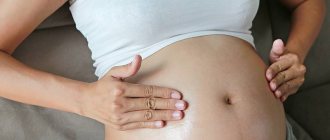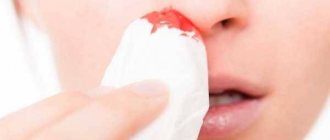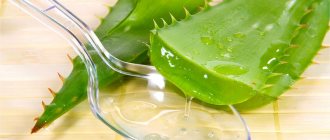Often pregnant women feel discomfort due to excess weight gained and hormonal changes. One of the most pronounced causes of discomfort for almost every pregnant woman is the presence of itching and burning in the intimate area.
Related articles:
Causes of itching in the groin in men: symptoms and treatment Itching and burning in the vagina: causes and treatment Causes of itching in the anus in women Causes of white discharge and itching in women We find out the causes of unpleasant itching in women
The reason for such irritability can be many factors that influence the life of the expectant mother both from the inside and on the external level. This unpleasant sensation can haunt a woman throughout the entire period of bearing a baby, and can manifest itself periodically due to certain factors.
Causes of itching in the intimate area during pregnancy
During pregnancy, a woman may most often experience itching in the intimate area for the same reasons that haunt all female representatives.
It manifests itself due to improper care, as a result of fungal, infectious diseases, when wearing uncomfortable synthetic underwear, problems with the nervous system, the presence of stressful situations, sexually transmitted infections, toxicosis, and subsequently severe stretching of the skin.
The occurrence of itching and burning processes is a direct reason to consult a doctor. You cannot use any medications on your own, because not all of them can be used during pregnancy.
Attention! Itching in the intimate area during pregnancy may be a sign of an allergy to a specific product, remedy, or plant. It is recommended to undergo a full examination that will identify the allergen.
In late pregnancy
The third trimester in the process of bearing a child is considered the most difficult and tiring in the life of a future mother. It is not uncommon during this period for a woman to feel severe itching in the genital area. It can be caused by external and internal factors. Very often occur due to stretching of the skin, indicating the approach of late toxicosis. In the latter case, if its presence is confirmed by examination, urgent measures must be taken, because late toxicosis is dangerous. To combat itching in an intimate place in late pregnancy, you can use official medicine, use, but be extremely careful with, the remedies recommended by traditional medicine.
Attention! A medicinal product, a method of combating itching with folk remedies, can be prescribed exclusively by a gynecologist.
In early pregnancy
Early periods in the process of bearing a child are characterized by a complete restructuring of the female body, changes in hormonal levels, and a significant decrease in immunity. These are the main reasons why itching in a woman’s intimate area becomes commonplace.
If too cold or rather hot weather is added to this, wearing synthetic underwear and scented sanitary pads cannot avoid this side effect. Itching may be one of the signs of a sexually transmitted infection, thrush.
Most medications are not used in the first three months of pregnancy; during this time, discomfort can be relieved using folk remedies. After 12 weeks, you can, if necessary, under the strict guidance of a doctor, begin drug treatment.
Should I see a doctor?
Undoubtedly, if a woman is bothered by severe itching in an intimate place during pregnancy, it is necessary to urgently take measures to eliminate not only the symptoms, but also the causes of its occurrence. Compliance with the rules of intimate hygiene serves as a good preventive measure to prevent the development of unpleasant symptoms, in particular, itching and irritation. Gynecologists recommend toileting the external genitalia twice a day (morning and evening).
Most women have encountered thrush at least once in their lives. During pregnancy, this disease can occur several times. If you notice cheesy vaginal discharge, a whitish coating on the labia, itching and other irritating factors on the genitals, it is recommended to consult a doctor for recommendations on an acceptable treatment regimen.
There are drugs approved for use at all stages of pregnancy, for example, Pimafucin, which solve problems in 3-6 days and normalize the flora in the vagina. They are also recommended by doctors to prevent the development of an inflammatory reaction before childbirth. The decision on the timing and recommendations regarding dosage is made only by the doctor observing the pregnant woman.
We suggest you read: Is it possible to have sex during early pregnancy?
Treatment at home
Often it is enough to change the care product for the delicate area of the body, give up allergens, sanitary pads, and avoid stressful situations for the expectant mother to leave the unpleasant feelings.
If the problem has a much deeper meaning, treatment cannot be avoided. Most of the medications prescribed by the doctor are taken by the woman at home. Coming out of this, you need to clearly understand that only the expectant mother controls the treatment process.
Be careful! It is necessary to strictly adhere to the dosage of drugs indicated by the gynecologist, to do all recommended procedures on time to achieve the desired goal.
As a complement to official medicine, after consulting with a doctor, you can use herbal decoctions, baths, and other traditional medicine.
Preventive measures
You should not stop treatment immediately after all unpleasant symptoms disappear, including itching in an intimate place. The main rule of prevention is not to forget about the need to keep the genitals clean. You should also avoid wearing clothes made of synthetic materials. An important place in terms of maintaining hygiene is the use of phosphate-free laundry detergents. Poor quality products often provoke the development of allergic reactions, which can manifest themselves in the form of itching and redness.
To avoid this problem for a pregnant woman, experts recommend doing gymnastics daily, which will help increase skin elasticity. The expectant mother should monitor her weight. She needs to reconsider her diet, giving preference to vegetables, fruits, vegetables, fish and meat.
Increased sweating can lead to irritation in the perineum, so the ideal temperature for the bedroom is considered to be 18 - 20 degrees. Air humidity should be between 30 – 45%.
The expectant mother should avoid casual relationships, and during sexual intercourse it is better to use a condom. If you have unprotected sex, there is a high risk of infection; in addition, a man's sperm can cause allergic reactions.
Treatment with folk remedies
The remedies used in traditional medicine do not always have indications for the expectant mother. Before you start using any of the traditional methods, you need to check it for the presence of individual intolerance, allergic reactions, and safety for the fetus.
Bath with potassium permanganate against itching
- Heat the water to a comfortable temperature - it should under no circumstances be hot.
- Calculate the amount of water in liters.
- For every 5 liters add a teaspoon of potassium permanganate.
- Sit in the bath for 15 minutes, maybe a little less.
Using this method you can very quickly get rid of unpleasant sensations, pathogens, and fungi.
Attention! These procedures cannot be done in the early stages of pregnancy, without the supervision of a loved one or medical advice.
Douching with carrot juice
Squeeze the juice of fresh carrots twice a day and use for douching.
Fir ointment against itching in the intimate area
- Melt 50 grams of natural butter.
- Add 5 grams of fir oil to it and mix.
- Boil the mixture in a water bath, cool, and put in the refrigerator.
Use the product as an ointment after douching with soda.
Herbal infusion for oral use
- Take 4 tablespoons of a mixture of such herbs - St. John's wort, chicory, string, calendula flowers, birch buds, hop cones.
- Pour boiling water over the herbs - exactly 1 liter of liquid.
- Let it brew for a couple of hours and strain.
The drug is taken orally 3 times a day, half an hour before meals, in an amount of 200 ml. The dose may be more, maybe less. Your doctor will help determine the exact amount of decoction to use during the day.
Inflammatory processes
Itching in an intimate place during pregnancy may be accompanied by vaginal discharge. Sometimes they are accompanied by an unpleasant odor. This is already a clear reason to see a doctor. It is worthwhile to dwell on this issue in more detail, since the nature of the discharge may be different. Each is observed with a certain type of viral infection. The information below is for informational purposes only.
Violation of the vaginal microflora is characterized by grayish discharge. Sometimes they have a pungent odor. If the disease is started, a strong inflammatory process with the release of pus may develop. Diagnosis and treatment must be carried out by the attending physician.
Itching in the intimate area in pregnant women also indicates a decrease in immunity. On the one hand, this is a natural reaction of the body to the development of the fetus, which allows it to gain a foothold and develop normally in the mother’s body. On the other hand, this is a reason to identify the cause in time and prevent the condition from worsening.
Medicines and suppositories against itching in the intimate area
To eliminate itching in an intimate place, you cannot choose tablets, ointments, or suppositories on your own. The drug is prescribed based on the timing of pregnancy, individual factors, and the cause of this uncomfortable situation exclusively by a gynecologist who monitors the pregnant woman throughout the entire period of pregnancy. By the way, you can learn about all the nuances of the pregnancy process in our section.
Attention! Be extremely careful, because many drugs that have indications for use in the second and third trimester of pregnancy are contraindicated in the first.
Livarol
These suppositories help fight itching and its causes as quickly as possible. Their use is permitted at the beginning of the 13th week of pregnancy. The course of application is 3-5 days using 1 candle per day, before bedtime. The drug normalizes microflora, kills fungi, and eliminates thrush.
Self-use is not recommended. Before giving your preference to Livarol, a consultation with a gynecologist should take place.
Clotrimazole
The drug provided is an antifungal agent. Available in the form of ointments, solutions, tablets. For pregnant women, ointment for external use is better suited. It is used no more than three times a day for one month.
Attention! The first trimester during pregnancy is a contraindication to the use of the drug in any form.
Hexicon
The drug "Hexicon" is available in the form of suppositories. It is highly effective in the fight against sexually transmitted and fungal diseases, which very often cause itching of intimate places. It is often prescribed as a prophylactic before childbirth in order to completely prepare and cleanse the birth canal.
By the way! In this article, you can learn how to effectively deal with unpleasant itching in women -
Candles are used for one week 2 times a day. Early periods are undesirable for using the drug; sometimes, as an exception, these suppositories are prescribed by a gynecologist.
Kleon D for itching during pregnancy
Itching caused by internal problems, a violation of the microflora of the intimate area, starting from the second trimester, can be treated with the drug "Kleon D". It is used in the form of tablets - regular, vaginal. For prevention purposes, it is actively used in the third trimester.
This is interesting! If you are tired of unpleasant itching on your skin, then read how to quickly and effectively treat it in our article.
For treatment, the drug is used as prescribed by a doctor for ten days. The most appropriate form of taking the drug is determined by the doctor for each individual.
If you follow the rules of personal hygiene, prevent venereal and fungal diseases, and replace synthetic underwear with natural ones, you can forget what unpleasant itching and burning in an intimate place are, not only during pregnancy, but also during normal life.
How to get rid of discomfort?
Sometimes, to get rid of itching, a pregnant woman just needs to change her underwear and replace the detergent. Stressful situations should also not accompany a woman during gestation. If the cause of discomfort in the perineum lies in allergies, by protecting herself from irritants, she will be able to forget about the discomfort.
If a disease is diagnosed, treatment cannot be avoided. All medications taken during pregnancy must be prescribed by a doctor. Many anti-inflammatory drugs have a teratogenic effect - which is why a woman in the second trimester of pregnancy, self-medicating, can disrupt the embryonic development of the fetus (see also: mucous discharge in the second trimester of pregnancy).
In addition to traditional therapy methods, the expectant mother can use traditional medicine. Make baths, use decoctions and herbal infusions with caution.
When treating pregnant women, doctors always adhere to the main rule - the medicine must be safe for the fetus. At different stages of pregnancy, various medications can be used:
- in the early stages, drugs are prescribed according to strict indications;
- in the second and third trimesters, the risk of negative effects on the fetus decreases, the range of medications approved for use expands.
When treating itching in pregnant women, experts recommend using local medications and vaginal suppositories. In a hospital setting, the patient may be prescribed:
- antibiotics;
- antibacterial and antifungal suppositories (Livarol, Hexicon);
- antiseptic ointments with antifungal action (Clotrimazole);
- hormonal drugs;
- antihistamines (for allergies) (see also: allergy pills in the 3rd trimester of pregnancy).
Traditional treatment
During pregnancy, dryness, itching and burning in the vagina should be treated with extreme caution. Many plants can have a negative effect on the fetus, so it is better to use traditional medicine methods after consultation with your doctor.
We invite you to familiarize yourself with Cheap cough medicines for children
There are many recipes that help eliminate itching in intimate places:
- Douching with carrot juice. The product has a soothing and wound-healing effect. The procedure should be performed twice a day.
- Douching with a solution of baking soda. Half a teaspoon of soda must be diluted in 1 liter of boiled water. The solution relieves swelling and inflammation. For thrush, the medicine inhibits the activity of Candida fungi.
- Infusion from a collection of herbs. To prepare the medicine, you need to pour 2 tablespoons of dry plants (birch buds, chicory, calendula, string, hops, St. John's wort) with 1 liter of boiling water. The decoction must be infused. The resulting tincture is filtered and then consumed orally in a glass 3 times a day.
Personal hygiene
If dryness and burning in the vagina are caused by physiological reasons, the pregnant woman should adhere to the following recommendations:
- it is necessary to refrain from scratching the itchy area so as not to injure the mucous membranes and skin;
- Daily water procedures will help relieve irritation (you need to take a shower 2 times a day, in the hot season the number of procedures must be increased);
- preference should be given to intimate hygiene gels with extracts of beneficial plants and lactic acid;
- after a shower, the skin must be wiped dry and put on cotton underwear;
- panty liners should be changed every 2 hours;
- after going to the toilet, it is better to blot the perineum with a damp cloth;
- In case of severe itching, the skin can be treated with a solution of salicylic alcohol (2%).
Viral infections
Some of the most dangerous viral infections for both the health of the mother and the fetus are:
- Chlamydia, which develops due to the activation of chlamydia. The first symptom is a feeling of moderate itching in the genital area, yellowish discharge. If the disease progresses, swelling may occur in the genital area, and touching it may cause pain.
- Trichomoniasis occurs due to the appearance of Trichomonas in a woman’s body. The nature of the discharge is foamy, green, yellowish or white, and itching may be mild or absent altogether.
- Vaginitis is expressed by irritation in the intimate area in pregnant women, a pungent odor and itching. The disease can be transmitted during sexual intercourse from a partner. Both should undergo treatment.
- Herpes - often occurs during pregnancy and can pose a threat to its normal course. Characterized by severe itching in the labia and at the entrance to the vagina. If treatment is not done in a timely manner, the surface of the mucous membrane becomes covered with papules, which burst, forming wounds. If left untreated, they can become a good source of infection.
The most common cause of itching in pregnant women in an intimate place is, as noted above, thrush, or vaginal candidiasis. It develops against the background of the proliferation of colonies of fungi of the Candida species, which are always found in the vagina of women. As long as the number of mushrooms is within normal limits, they do not cause harm. In pregnant women, fungi begin to multiply intensively, since in this state women's hormonal levels change and immunity decreases.
Liver pathologies
In the third trimester of pregnancy, the cause of itching may be cholestasis. If a woman has previously been diagnosed with a similar ailment, then during the period of bearing a baby she should be especially attentive to the manifestation of unpleasant symptoms. The main impetus for the deterioration of well-being is a change in hormonal levels in the pregnant woman’s body.
We invite you to familiarize yourself with When maternity benefits are paid at work: before or after childbirth, employer payment of maternity benefits in 2020









